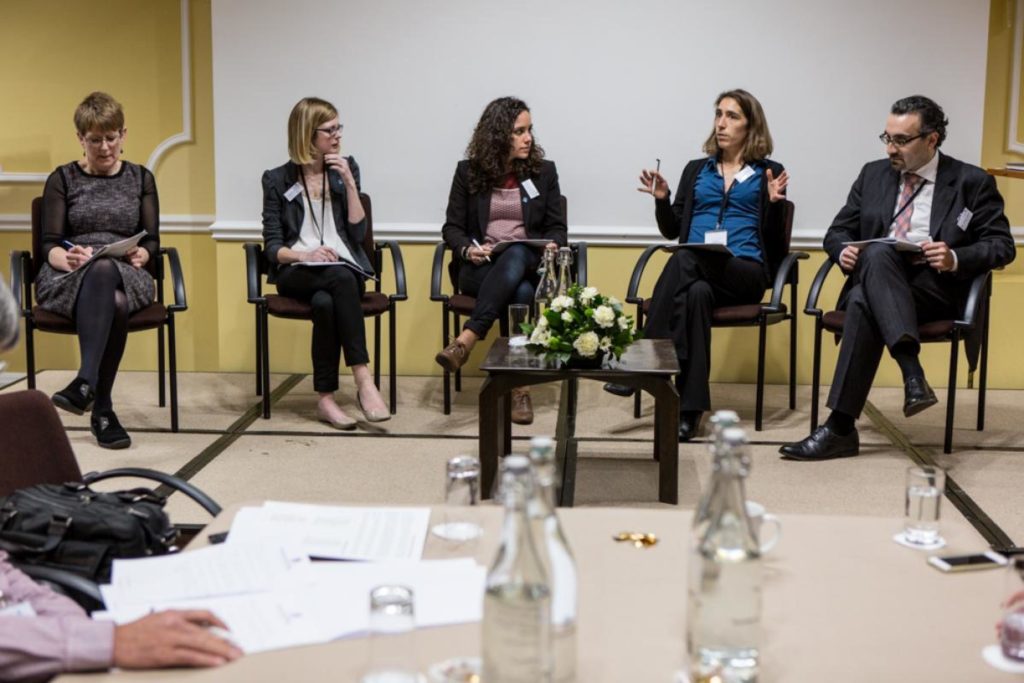Ema Talam
Jon Fairburn
March 2nd, 2021
1 comment | 57 shares
Estimated reading time: 7 minutes
Peer support, finding a place within academia, staying up to date with the latest research, communicating research to wider audiences and navigating life after PhD. Ema Talam and Jon Fairburn outline five ways in which social media, and in particular Twitter, can make all the difference to PhD research at a time when regular academic life has been severely disrupted.
Doing a PhD is hard: lack of work-life balance, uncertainty about the future, diminishing satisfaction with the PhD programme over time, isolation, harassment and discrimination are all too common experiences. COVID-19 has only exacerbated these challenges.
Whilst by no means a panacea, at a time when undertaking a PhD is even more of a fragmented and disjointed experience, social media provides an important space for connection. We – a PhD student and an experienced researcher with over 25 years of experience in academia – put forward the five following reasons why PhD researchers at any stage of the process can benefit from engaging with academic social media and why it is more important now than before COVID-19 pandemic.
Peer Support
Let’s start with the peer support. With universities in lockdown and many PhD students working from home, the informal support that comes from working as part of a research community has diminished. Despite its sometimes hostile reputation, peer support is strongly present on Twitter. Readers new to academic Twitter might consider following general academic hashtags, such as #AcademicTwitter, #AcademicChatter and #AcademicMentalHealth, or specifically PhD centred discussions on #phdchat and #virtualnotviral. Whilst a hashtag is not a peer support network, in difficult times they provide pathways to resources and opportunities to meet likeminded people that can make all the difference.
You may even find your peer group is larger than you anticipated. The sudden shift to remote teaching and learning early last year, placed experienced professors and PhD researches running their first classes from all fields in the same position of learning to teach remotely for the first time. The hashtags above as well as being links to a wider research community have also been an invaluable resource for teaching tips and tricks, learning resources and even free training. Do not be afraid to ask questions related to teaching or any aspect of academic life.
Whilst a hashtag is not a peer support network, in difficult times they provide pathways to resources and opportunities to meet likeminded people that can make all the difference.
Finally, Twitter can also be used as a tool for co-ordinating and engaging with existing PhD communities, for instance through organising synchronous and a-synchronous events, such as remote writing retreats.
Navigating your academic discipline(s)
In a similar way hashtags can also be used to find academic communities, for economists #econtwitter is a good place to start as is RePEc’s list of economists on twitter. Learned societies and their social media accounts, e.g. in our fields the Royal Economic Society or Regional Studies Association, also provide useful points for finding the latest news from a particular discipline and often provide tailored advice for how certain disciplines approach social media.

For better or worse, social media is a surveillance network. By following academics whose work you are interested in, you can not only directly engage with them, but by simply following you can develop a sense of the research, networks and events they are interested in. These can help you orient your research towards academic communities and projects that may not be represented within your own institution.
While approaching people at conferences can be intimidating, it is almost impossible on Zoom events due to lack of time dedicated for informal networking or even any breaks at all
Social media can also be a source of inspiration for looking beyond your immediate discipline. The shift to digital as a result of the lockdown, has considerably lowered barriers to attending conferences and seminars. These events are regularly advertised via social media and are a great opportunity for you to attend new areas of research and expose yourself to new ideas and methods that can benefit your PhD.
While approaching people at conferences can be intimidating, it is almost impossible on Zoom events due to lack of time dedicated for informal networking or even any breaks at all. Fortunately, the back channel provided by social media, such as Twitter, can provide a means of keeping the conversation going. Look out for event hashtags, which can be used to preview your work, or just to signal your presence and highlight what you found interesting. Finally, in digital environments where genuine engagement can often be minimal, a considered question or engagement is invaluable and can even lead to future collaboration.
Keeping up to date with the latest research
Not all academic dialogue resides in published academic papers. Many academics post and discuss newly published papers on Twitter. Social media such as twitter, are also central to sharing non-standard research outputs like blogposts, infographics, or even datasets. As COVID-19 has demonstrated much influential research has circulated via social media in the form of preprints, long before final publication. These can all be very useful for PhD students to track new developments in their fields of study.
Communicating your research to wider audiences
COVID-19 has also demonstrated the importance of social media as part of the public sphere and having a profile has become increasingly important for making your work visible to important stakeholders, the media and the general public. Established organisations, such as NGOs, or even your university, are likely to have significant audiences on social media and present opportunities to share your research with non-academic audiences.
This could involve simply tagging potential interested stakeholders in posts or taking part in more structured engagements. Simply being on social media does not guarantee public engagement, but it is a platform that allows you to connect to potential research users, which can be invaluable at a time when social contact of any type is minimal.
Life after PhD
Institutions and academics often share information about the job openings on Twitter. Following academics in your field of study can ensure that you have information about new job openings. Twitter makes it easy for information about job openings to be shared – your network can either tag you in posts about job openings or send a direct message. By building your social networks around your research interests, you are more likely to find relevant information about job openings in the field(s) of interest, whether in or outside of the academia. Many government agencies, firms and universities also have their professional profiles on LinkedIn, where they share information about new job opportunities. Additionally, on LinkedIn, you can easily indicate your openness to work or share your CV should you wish to. Both platforms can be used to seek for advice regarding job applications and help write stronger applications.
PhD students (and their supervisors) are sometimes sceptical about the use of social media and the time that will be spent on social media. Engaging with academic social media does not have to involve huge time investments – it can involve only several minutes per day and directly depends on what you want to get out of it. We would argue the benefits of using academic social media far outweigh the costs.
Note: This article gives the views of the authors, and not the position of the Impact of Social Science blog, nor of the London School of Economics. Please review our Comments Policy if you have any concerns on posting a comment below.
Image Credit: Adapted from Jon Tyson, via Unsplash.

About the author

Ema Talam
Ema Talam is a final year PhD in Economics student at Staffordshire University. She is interested in the topics of firm-level productivity, innovation and exporting, as well as innovation policies. Follow Ema on Twitter on @ematalam.

Jon Fairburn
Jon Fairburn is Professor of Sustainable Development at Staffordshire University. He teaches on the MSc Digital Marketing Management amongst other courses. Follow him on Twitter @ProfJonFairburn.


